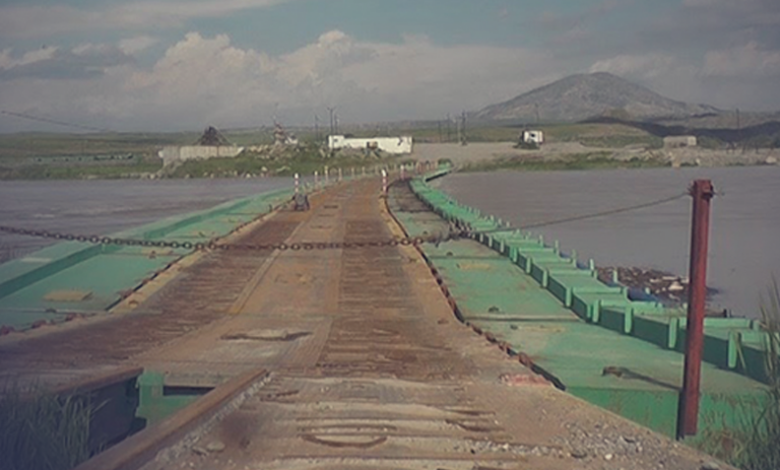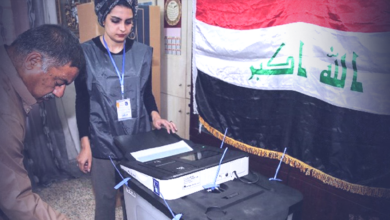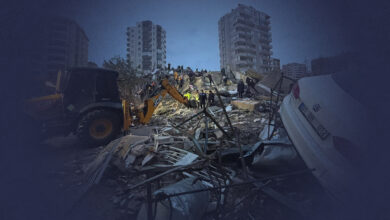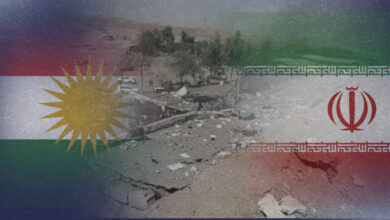
SULAIMANI, Kurdistan Region — The Fishkhabour (Semalka) border crossing between the Kurdistan Region of Iraq and northeastern Syria (Rojava) has been closed for five days, as blame for the closure is tossed between the Kurdistan Regional Government (KRG) and Autonomous Administration of North and East Syria.
Located on the Tigris River, about 1 km downstream from the Iraqi–Syrian–Turkish tripoint, Fishkhabour is a major border crossing between the Kurdistan Region of Iraq and the Autonomous Administration of North and East Syria.
The crossing is important for both economic and humanitarian reasons. It allows for the flow of goods and people between the two regions, and it is also a major route for humanitarian aid deliveries to areas of Syria that are difficult to access by other means.
Due to political tensions, the crossing has been closed several times, but it has generally been open since 2016. Nevertheless, the crossing has once again been closed since Thursday, and there seems to be no prospect of its reopening in a near future. Authorities from both sides have set a deadline to permit the return of tourists between the two Kurdish regions to their respective hometowns.
On the Iraqi side, the crossing is located in the town of Fishkhabour, which is in the Zakho district of the Kurdistan Region. On the Syrian side, the crossing is located in the town of Semalka, which is in the Hasaka governorate. In Rojava, it is commonly known as Semalka, while in the Kurdistan Region, the crossing is referred to as Fishkhabour.
In an interview with Zoom News reporter in Rojava, Jihad Nebo, Baz Ahmed, the head of the Public Relations Office at the crossing, stated that the decision was not made by the Rojava administration, attributing the decision to the KRG, specifically pointing fingers at the ruling Kurdistan Democratic Party (KDP).
“The crossing holds significance not only for the Rojava administration but also serves as a lifeline for the people of Rojava, particularly for those who are ill and in need of medical transportation, as well as for the delivery of essential medicines and humanitarian assistance,” said Ahmed.
Ahmed added that the KRG authorities responsible for the crossing have notified the Rojava administration of their intention to completly close it within a week. As of now, only two days remain before the deadline, leaving tourists with limited time to return to their respective hometowns on either side of the crossing.
However, the authorities at the crossing in KRG have strongly responded to the Rojava administration, accusing them of intentionally “distorting reality” and “creating crises” for which the Kurdish people in Syria always end up paying the price.
“The KDP leader Masoud Barzani has given the order to open the crossing, with the aim of assisting the Kurdish people in Syria. The Kurdistan Region has emphasized the crucial role of maintaining the crossing, as it serves as a vital transportation route for delivering humanitarian aid. Despite three agreements having been made regarding the crossing, the Democratic Union Party (PYD) has breached all of them,” read a statement from the KRG’s crossing administration.
The statement accuses the Rojava administration of utilizing the crossing as a route for transporting weapons to the Kurdistan Region.
“The PYD is aware that their intention was to transport weapons to the Kurdistan Region in order to destabilize its security. The international community is well aware of this fact too,” read the statement.
However, the PYD has not provided a response to the assertion.
The most recent closure of the crossing occurred in 2021, lasting for a period of 40 days. During that time, the Rojava administration reported that they were denied access to the border crossing, even for essential purposes such as humanitarian aid and medical emergencies.



